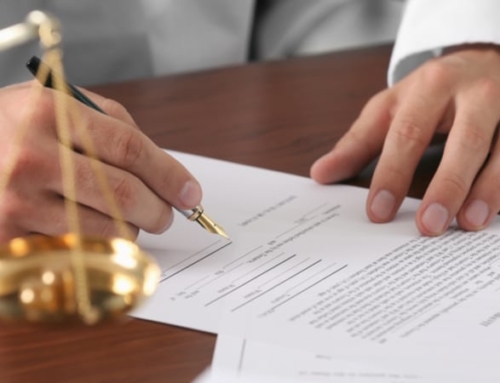Q: My husband took out a mortgage loan to buy our house after we married. He left me off the loan application because he said his credit was perfect and mine was not.
After the loan was processed, he said he would add my name to the deed by having me sign a “quick claim” so both of our names were on the deed rather than just his. We went to a title company and went through some paperwork and when I came across one titled “quit claim” I asked what that meant since my husband called it a “quick” claim initially.
The title company representative who I was asking this of looked at my husband and my husband then interjected that this was the paper that would add my name to the deed and he had the name of it wrong. I again looked at the title company representative and he said “Yes, that’s correct.”
I was a newlywed with an infant and considered myself happily married so I had no reason to not believe what I was being told. I signed it but have since been told that what I signed was a waiver to any interest in the property. My husband (now estranged) said first that he doesn’t know why I had to sign that and then later that the mortgage company required it in order to process the loan. However, I signed it after the loan was a done deal.
If you could offer any clarification of what impact my signing that quit claim has and what recourse I may have, I would greatly appreciate it.
A: The deed is called a “quit claim” deed, not a “quick claim” deed — although it’s a common mistake people make. The purpose of a quit claim deed is to transfer any ownership interest someone has in a property to someone else. I could quit claim you the Sears Tower in Chicago — except that I don’t own it.
If your name wasn’t originally put on the house, your husband might have executed a quit claim deed, transfer ownership of the property from himself to the two of you. Or, if you actually owned the property to begin with (even if he told you that you didn’t), you might have signed a quit claim deed giving him your ownership interest in the property.
You say you were a newlywed with an infant when this occurred, but you should never have signed any legal document you didn’t understand.
I don’t know what document you signed. Do you have a copy of it? If the deed was recorded, you should be able to find it in the local registrar of deeds office and see what it says. Then, you should hire a real estate attorney to assist you in figuring out what you’ve done.
On the issue of the closing, it’s not unusual to have a married couple or just one half of the couple (usually the one with better credit) apply for a loan. It is more common to have a husband and wife both own a property together, but on occasion, only one of the spouses might be the sole owner of the property.
If you and your husband owned the property together, and you subsequently refinanced the property, he might have tricked you into transferring your interest in the home to him at that closing.
That being said, if you were never an owner of the home, when your husband refinanced the home, the lender would have required you to waive your homestead rights to the property. That document would have been required by the lender for your husband to refinance the property.
But if he tricked you and had you sign over your ownership in the home to him and you are now having marital difficulties, you might want seek the advice of a divorce attorney who may be able to help you figure out what you’ve done and what you’ll be entitled to if you and your spouse divorce.
At the very least you should have a better understanding of what your rights are under your circumstances particularly if your husband decides to sell the home and keep the money from the sale. You’ll have a harder time finding the money than protecting your interests in the home should you decide to get divorced.
July 10, 2008.






Is a house consider person property if a quit claim deed was not provided when a divorce was final. Does the person whos name has never been on the deed and has never lived in the house have interest in this house when there wasn’t a quit claim deed after the divorce. the house was never mention in this divorce